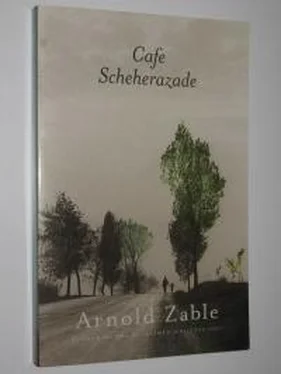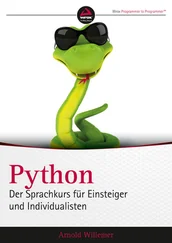Arnold Zable - Cafe Scheherazade
Здесь есть возможность читать онлайн «Arnold Zable - Cafe Scheherazade» весь текст электронной книги совершенно бесплатно (целиком полную версию без сокращений). В некоторых случаях можно слушать аудио, скачать через торрент в формате fb2 и присутствует краткое содержание. Город: Melbourne, Год выпуска: 2001, Издательство: Text Publishing Company, Жанр: Проза, на английском языке. Описание произведения, (предисловие) а так же отзывы посетителей доступны на портале библиотеки ЛибКат.
- Название:Cafe Scheherazade
- Автор:
- Издательство:Text Publishing Company
- Жанр:
- Год:2001
- Город:Melbourne
- ISBN:нет данных
- Рейтинг книги:4 / 5. Голосов: 1
-
Избранное:Добавить в избранное
- Отзывы:
-
Ваша оценка:
- 80
- 1
- 2
- 3
- 4
- 5
Cafe Scheherazade: краткое содержание, описание и аннотация
Предлагаем к чтению аннотацию, описание, краткое содержание или предисловие (зависит от того, что написал сам автор книги «Cafe Scheherazade»). Если вы не нашли необходимую информацию о книге — напишите в комментариях, мы постараемся отыскать её.
Cafe Scheherazade — читать онлайн бесплатно полную книгу (весь текст) целиком
Ниже представлен текст книги, разбитый по страницам. Система сохранения места последней прочитанной страницы, позволяет с удобством читать онлайн бесплатно книгу «Cafe Scheherazade», без необходимости каждый раз заново искать на чём Вы остановились. Поставьте закладку, и сможете в любой момент перейти на страницу, на которой закончили чтение.
Интервал:
Закладка:
Masha had glimpsed the future. She had glimpsed the fate of millions. The sight of the fear-stricken faces lingered on in her dreams of ghost trains crowded with disembodied white hands, reaching out from behind iron bars; and of a Gypsy fortune teller whispering, "You will not live long. A girl with such delicate white hands is destined to die young."
iv
The de facto Jewish parliament is assembling on the pavement outside Scheherazade, as it does every Sunday morning. In pairs, in groups of four or more, they lean on posts, against the parked cars, or prop themselves by the cafe door. While others stand, just so, like birds momentarily arrested mid-flight.
Listen to them argue. Idle by for an hour or two. Observe the hands and the arms. See them make circles and arcs. Theirs is a parliament of self-appointed ministers and speechwriters. There are many problems to be solved. One group analyses the money markets. A second argues over the 57 fluctuating fortunes of rival political parties. A third group tears apart the weekend headlines. They pass judgment on countries near and far. They cast their eyes back to events long past. Their collective gaze extends from the first year of the twentieth century to the last.
Amidst this babble can be heard the voice of Laizer Bialer: "So, you think you can save the world, you hero in underpants. So you think you know it all, you no-good bastard, you clever little philosopher, you fool."
Yet when we sit alone, at a table inside the cafe, on this Sunday morning in late spring, the aggressive banter gives way 58 to a haunting intensity. It can be seen in the eyes. They turn inwards, away from me. Laizer loses all sense of his surroundings; and, without warning, he has glided into another world.
It can come upon him any time, anywhere. He may be walking on the beach, on his daily stroll, aware of the traffic whispering on the foreshore, the waves nibbling at his feet. But Laizer is moving in his parallel universe: standing waist-deep in water beneath the arctic wilderness, or lying on his back, on the boards of a cattle truck, his body registering every bump and jolt.
Or he is being led along a dark passageway, handcuffed, driven by prison guards to a door. The same door night after night. The guards hurl him inside, and he is standing in front of an interrogator whose face is barely visible behind a single globe.
The globe moves back and forth, back and forth. Laizer is mesmerised by the swaying light; his interrogator is demanding:
"Confess! Admit that you are a foreign imperialist! An enemy alien. A spy!" The lamp is swinging back and forth, and all
Laizer can see is the glaring light, and all he can hear is the monotonous drip of a tap, an endless dripping, an endless swinging back and forth.
Again the waves are swirling about his feet; Laizer is back on the cusp of the bay. He makes his way along the well-worn route.
Crosses The Esplanade to Shakespeare Grove. Turns right into
Acland Street. Rejoins the "parliament", the bustling crowds, the arguments which rage on the narrow footpath; and 59 he enters Scheherazade, eager to see a familiar face, to find a table surrounded by friends, even if they are a bunch of no-good bastards!
This morning, however, we are seated alone, as prearranged, so that Laizer can recount his tale. "I cannot see any continuity in my journey," he murmurs. "Only broken lines."
Laizer tells his story in fragments, and in the telling he moves from anxiety to light-heartedness, from obsession to banter, from one city to another. It is left to me to reconstruct the map and the chronology. A scribe, a no-good scribbler, I cannot turn back. What had begun as a simple newspaper story has exploded beyond my grasp. I listen. And I record. Driven by the knowledge that the old men are moving on, nearing the ends of their tumultuous lives; driven by a sense that it would be a tragic betrayal if their stories disappeared without trace.
In the final months of 1939 Laizer decided to forsake Wolfke's, and the interminable discussions of what to do, where to go, where to seek refuge; the debates that raged in the saloon, the restaurant and smoke-filled banquet hall:
"Vilna is safe," argued one.
"Vilna is too close to the front Line," asserted another.
"Perhaps it is better to run for the east," reckoned a third.
"Better the devil one knows," reasoned others.
"Perhaps we should run to the north," interjected the realists.
"To the Baltic Sea. Scandinavia. Or perhaps the Atlantic coast."
60
"And fall into the Nazi trap?"
Until Laizer had heard enough. The indecision began to suffocate him. Or perhaps it was simply on impulse that he forsook Vilna and his friends.
In February 1940, Laizer moved south from Vilna, deeper into
Soviet territory, through White Russia and the Ukraine. Despite the fact that he was a refugee, he knew his Polish passport would be suspect on Soviet soil. So what? These were desperate times, and he prided himself on being a gambler. Soviet-controlled Vilna was too close to Nazi-occupied Poland for comfort. Only a fragile pact between Germany and Russia kept Hitler's armies at bay; and
Laizer knew that pacts and alliances between empires could change overnight.
He was arrested by a patrol of Red Army soldiers, charged with illegal crossing of the border, and entrained, under armed guard, to a Soviet prison in the Ukrainian city of Lvov.
"There were 106 prisoners in one double room," Laizer recalls, with precision. "We would measure the space we allotted ourselves to sleep in. If you wanted to turn over, you had to ask the people around you to turn with you. It was never dark; all night a single light burned.
"It was a comedy. Our toilet was a drum, standing in the corner of the room. The room did stink of our own waste. We smelt like vagrants, unwashed tramps. We had a daily ration of bread and diluted soup. You could not call it soup. It tasted like swamp water. Every fortnight we received a matchbox full of sugar. This was our first great luxury. There was only one 61 window, high up, and through it, from a certain prized position, you could see a patch of sky, a ray of sun, or dark clouds rushing by. Or, sometimes, even the moon. This was our second and final luxury.
"In return, we could be searched at any time. We were made to undress. They probed every orifice. They looked for weapons, pencils, for surplus rations of bread.
"There was a Polish priest, a fellow prisoner, who did make a chess set out of stale bread. He carved it with his bare hands.
Such artistry I never saw in my life. Such elegant knights and pawns. Such fine detail. The chess set was more important to him than food.
"To stay sane, we became inventors and improvisers. When our clothes wore out we carved needles out of fish bones retrieved from our soup. We drew yarn out of our rags, threaded the yarn through the bones, and patched up our clothes.
"And always, they did come to question us late at night. I was led through a long corridor to the interrogation room. The interrogators were well dressed, well fed. I was not beaten. I was not physically tortured. They wanted just one thing, a confession. They claimed they had evidence, but they wanted me to own up to being a foreign spy. It was a kind of game; with always the same questions, always the single globe swinging back and forth, always the dripping of a tap behind me.
"Often my interrogators looked bored. At other times their posture was more threatening, their voices harsh. To this day, 62 when I hear a tap dripping in another room, I have to stop it, immediately. My hearing is so sharp I can pick it up even when the drip, drip, drip, is very light. I am always tightening taps, replacing washers, old pipes. I want to be sure. Prevention is better than cure.
Читать дальшеИнтервал:
Закладка:
Похожие книги на «Cafe Scheherazade»
Представляем Вашему вниманию похожие книги на «Cafe Scheherazade» списком для выбора. Мы отобрали схожую по названию и смыслу литературу в надежде предоставить читателям больше вариантов отыскать новые, интересные, ещё непрочитанные произведения.
Обсуждение, отзывы о книге «Cafe Scheherazade» и просто собственные мнения читателей. Оставьте ваши комментарии, напишите, что Вы думаете о произведении, его смысле или главных героях. Укажите что конкретно понравилось, а что нет, и почему Вы так считаете.












